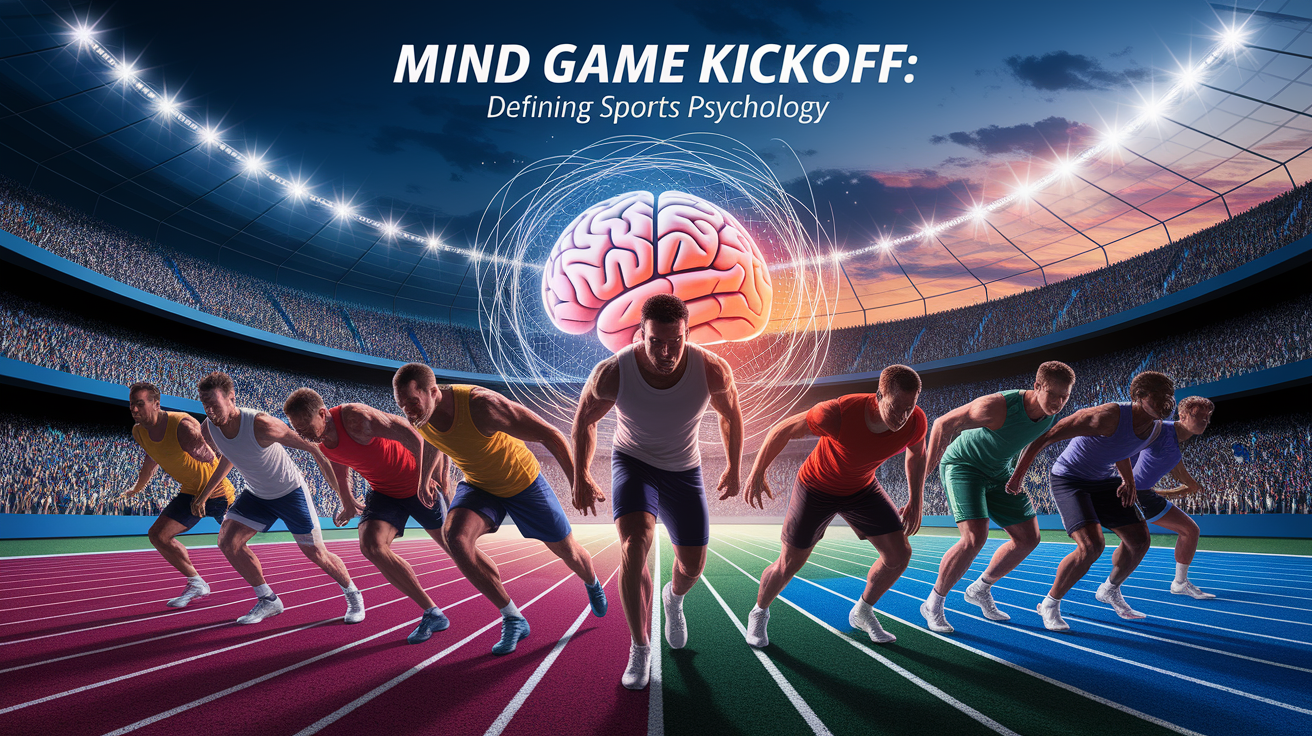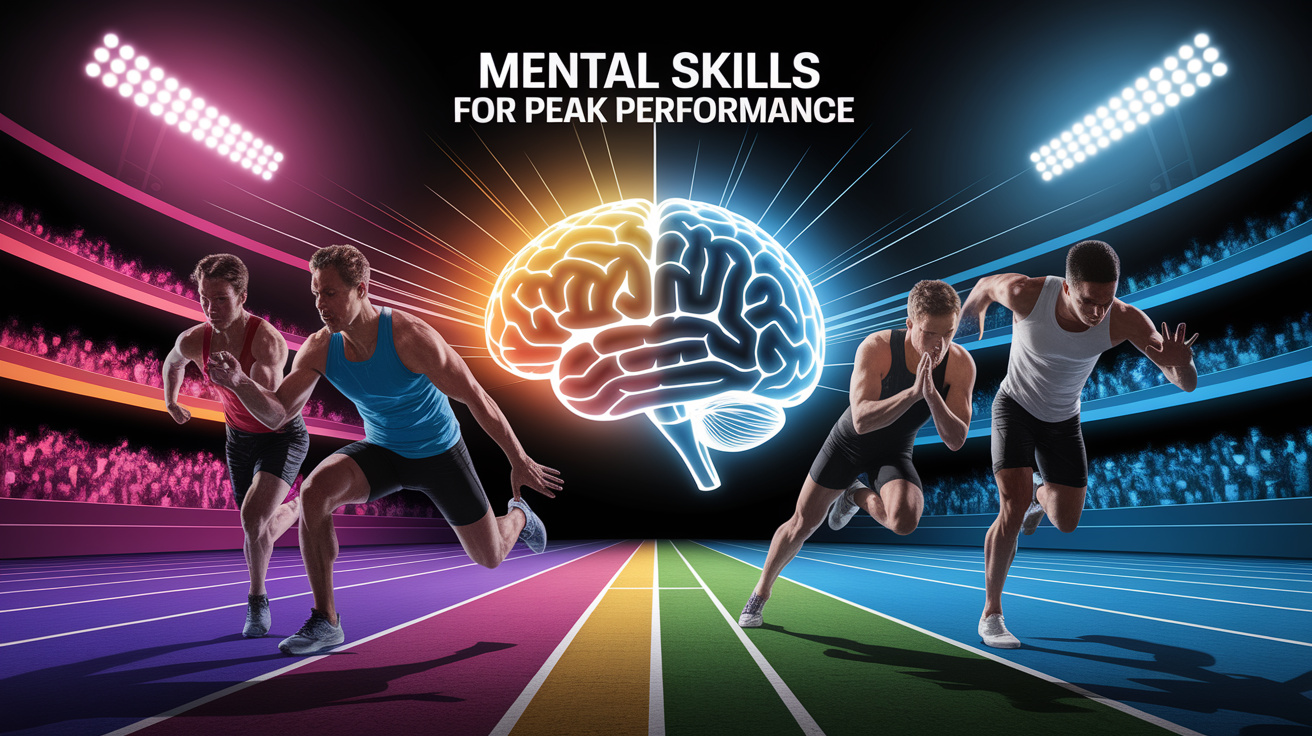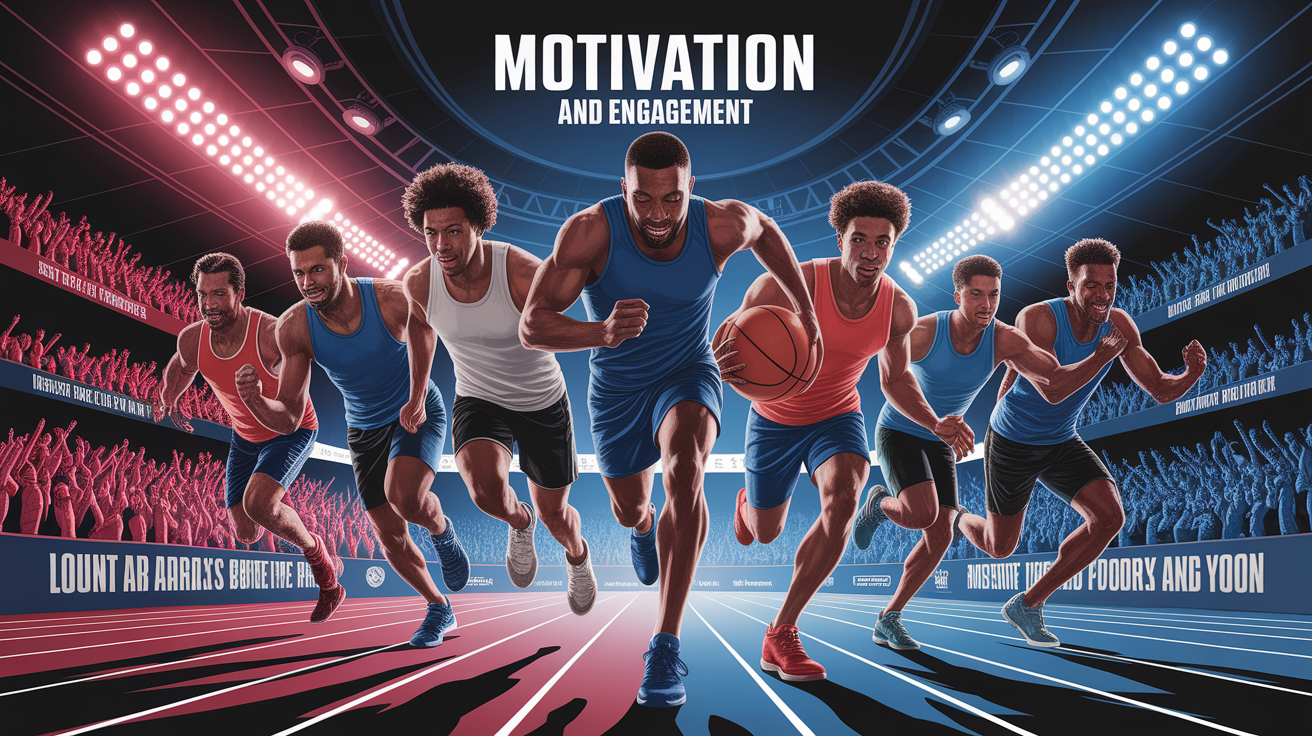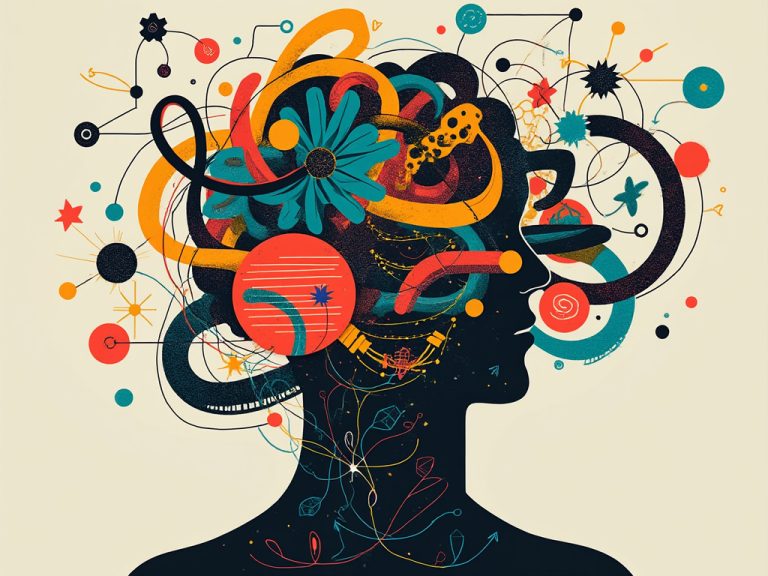Mind Over Muscle: Unlocking Peak Performance with Sports Psychology
In the world of sports, physical prowess is often celebrated as the key to victory. We marvel at the sprinter’s explosive speed, the weightlifter’s raw power, and the gymnast’s flawless execution. Yet, behind every great athletic achievement lies an equally powerful, though often invisible, force: the mind. The difference between a good athlete and a great one frequently comes down to the mental game. This is the domain of sports psychology, a field dedicated to understanding and optimizing the psychological factors that drive athletic success and well-being.
Mind Game Kickoff: Defining Sports Psychology
At its core, sports psychology is the scientific study of how psychological factors affect, and are affected by, participation and performance in sport, exercise, and physical activity. It’s not just for elite athletes; its principles are applied to help individuals of all ages and abilities enhance their performance, cope with the pressures of competition, recover from injuries, and maintain exercise programs. This field recognizes that an athlete is a whole person, where mental and physical states are deeply entwined. It acknowledges the fundamental importance of understanding the interconnectedness of mental and physical health for overall performance and life satisfaction.

Sports psychology is a profoundly interdisciplinary field, drawing critical insights from psychology, kinesiology, biomechanics, and physiology. This integrated approach allows sport psychologists to address a wide spectrum of issues. Their responsibilities can range from teaching performance-enhancement strategies to helping athletes manage their mental health. According to a detailed overview of the profession, their work is not limited to performance but extends to improving social interactions and overall well-being, making it a valuable resource for athletes and non-athletes alike.
Mental Skills for Peak Performance
A sports psychologist’s primary role is often to equip athletes with a mental toolkit for achieving peak performance. This involves teaching cognitive and behavioral strategies—often called Psychological Skills Training (PST)—that build mental toughness and resilience. These skills are just as trainable as any physical technique, leveraging the brain’s remarkable capacity for adaptation. The ability to learn and master these mental routines is a practical demonstration of how the brain adapts and grows through focused effort.

Common mental challenges for athletes include managing performance anxiety, maintaining focus amidst distractions, and bouncing back from errors. Some of the key mental skills used to address these include:
- Visualization and Imagery: This involves mentally rehearsing a performance, from a specific move like a free throw to an entire race. The brain often doesn’t distinguish between vivid visualization and actual practice, making it a powerful tool for building confidence and muscle memory. Many successful athletes consider this one of their most crucial pre-performance routines.
- Goal Setting: Effective goal setting involves creating specific, measurable, achievable, relevant, and time-bound (SMART) goals. This provides direction, increases motivation, and allows athletes to track progress, a principle that demonstrates how applying psychological principles to improve performance is transferable across domains.
- Stress Management and Emotional Control: The pressure of competition can be overwhelming. Techniques like deep breathing, mindfulness for athletes, and progressive muscle relaxation help manage physiological arousal. Understanding and regulating emotions is a core part of the science of our inner world and is critical for staying composed in high-pressure situations.
- Positive Self-Talk: The internal dialogue of an athlete can either build them up or tear them down. Sports psychologists work with athletes to identify and reframe negative self-talk into constructive, instructional, and motivational thoughts.
- Focus and Concentration: Athletes learn strategies to block out external distractions (e.g., the crowd) and internal distractions (e.g., worries about the outcome) to stay fully present in the moment. Many of these are science-backed psychological techniques adapted for the unique demands of sport.
Motivation and Engagement in Sports
What drives an athlete to push through grueling training sessions day after day? Understanding motivation in sports is key to long-term success and enjoyment. Sports psychologists often distinguish between two types of motivation:

- Intrinsic Motivation: This comes from within. The athlete participates for the love of the sport, the joy of competition, and the personal satisfaction of improvement.
- Extrinsic Motivation: This comes from external sources, such as trophies, prize money, scholarships, or social recognition.
While extrinsic rewards have their place, a strong foundation of intrinsic motivation is a more powerful predictor of sustained engagement and resilience. When motivation wanes, it can lead to burnout in athletes—a state of emotional and physical exhaustion. Sport psychologists help athletes and coaches create environments that foster intrinsic motivation, prevent burnout, and build sustainable passion for the sport.
Psychological Support in Injury and Recovery
An injury can be one of the most psychologically devastating events in an athlete’s career. The physical pain is often accompanied by a host of emotional challenges: fear, frustration, sadness, and a sense of isolation from the team. The role of sports psychology in injury rehabilitation is critical for a successful return to play.

A psychologist can help an athlete navigate the recovery process by:
- Managing Emotional Responses: Providing a space to process the difficult emotions associated with being sidelined.
- Maintaining Motivation: Using goal-setting techniques for the rehabilitation process to keep the athlete engaged and focused.
- Coping with Setbacks: Developing coping strategies for athletes to handle the ups and downs of a long recovery.
- Rebuilding Confidence: Addressing the fear of re-injury, which is a common barrier to returning to pre-injury performance levels.
Injury recovery psychology underscores the deep connection between mind and body, showing how a positive and resilient mindset can facilitate physical healing.
Team Dynamics and Communication
In team sports, individual talent is not enough. The way a team functions as a unit—its cohesion, communication, and collective mindset—is a primary factor in its success. Coaching psychology and team-building are significant areas within sports psychology.

Sport psychologists work with teams and coaches to improve team dynamics by focusing on:
- Team Cohesion: Fostering a sense of unity and shared purpose among teammates, both on and off the field.
- Communication Skills: Teaching athletes and coaches how to communicate constructively, give and receive feedback, and resolve conflicts.
- Defining Roles: Helping each team member understand and accept their specific role for the betterment of the team.
- Collective Efficacy: Building a shared belief in the team’s ability to succeed.
Learning how to build team cohesion in high school sports or at the professional level can transform a group of skilled individuals into a formidable, championship-caliber team.
Beyond the Final Whistle: Life After Sport
For many competitive athletes, their sport is more than a passion; it forms a core part of their identity. The transition out of a sport, whether due to retirement, injury, or simply moving on, can lead to a significant sense of loss and uncertainty. This is where a sport psychologist’s work extends beyond performance. They assist athletes in navigating this challenging life change by helping them:
- Explore a New Identity: Cultivate interests and a sense of self outside of the “athlete” label.
- Transfer Skills: Identify how skills learned in sport—such as discipline, resilience, and teamwork—can be applied to new careers and life pursuits.
- Manage Mental Health: Address potential issues like depression or anxiety that can arise during this transition.
The Final Whistle: Wrapping Up Sports Psychology
Sports psychology is a dynamic and essential field that champions the idea that the mind and body are partners in the pursuit of excellence. It provides athletes with the mental skills to manage pressure and achieve peak performance, helps them stay motivated, supports them through the hardship of injury, fosters strong team dynamics, and guides them in life after their athletic careers.
For those wondering how to find a qualified sports psychologist, it’s important to look for proper credentials. Professionals in this field typically hold a master’s or doctoral degree in sports psychology or a related area like clinical or counseling psychology. The educational requirements can be rigorous, and in many regions, practitioners register with professional bodies to become certified or licensed. For example, some may become a ‘sport and exercise psychologist’ registered with an organization like the Health and Care Professions Council (HCPC) to ensure they meet professional standards. Career paths are varied, including working in academic institutions, with professional sports teams, or in private practice. By seeking out these professionals, athletes at all levels—from youth sports to the Olympic stage—can learn to harness the power of their minds to truly master their muscle.







